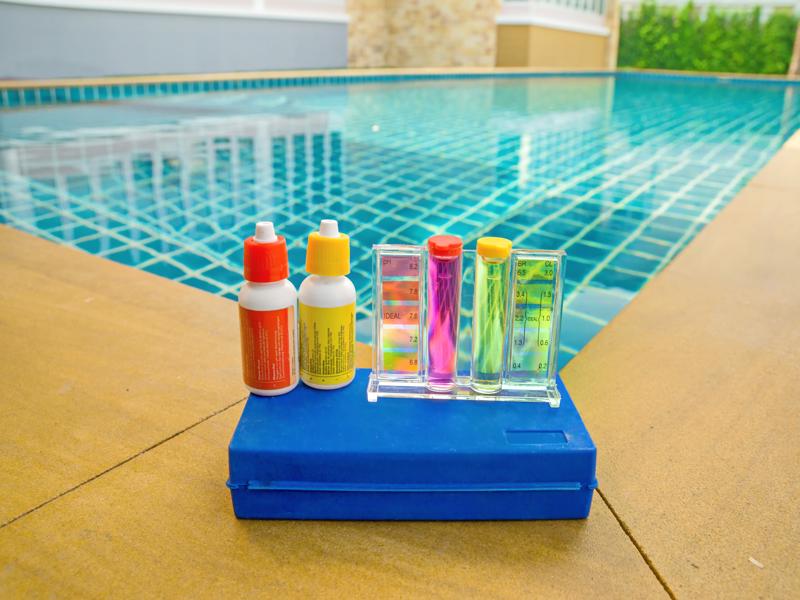Swimming pools offer a refreshing oasis, a place to cool off and relax on hot summer days. However, behind the sparkling blue waters lies a crucial aspect that often goes unnoticed—maintaining the water quality.
Regular pool water testing is of paramount importance to ensure the water remains healthy and balanced, safeguarding the well-being of swimmers and the longevity of the pool itself. We will delve into the significance of pool water testing, emphasizing the need for consistent monitoring and providing insights into maintaining optimal water conditions.
Maintain Clean & Balanced Pool Water
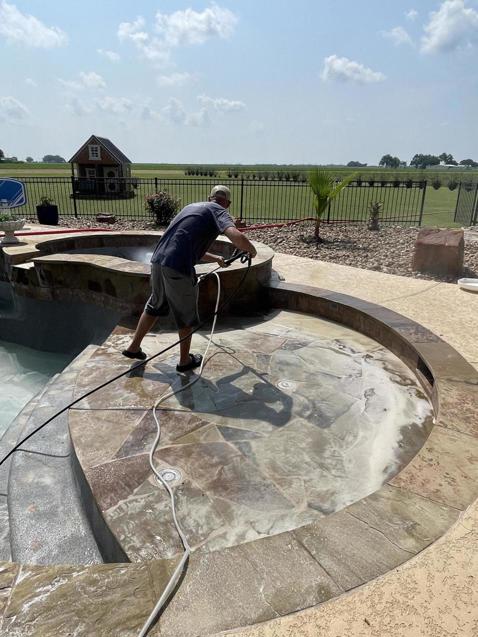
Maintaining clean and balanced pool water is vital for the health and safety of swimmers. A pool that lacks proper water quality can become a breeding ground for harmful bacteria, viruses, algae, and other contaminants. These microorganisms can cause a range of illnesses, including skin and eye infections, respiratory problems, and gastrointestinal issues.
Conduct Regular Pool Water Testing
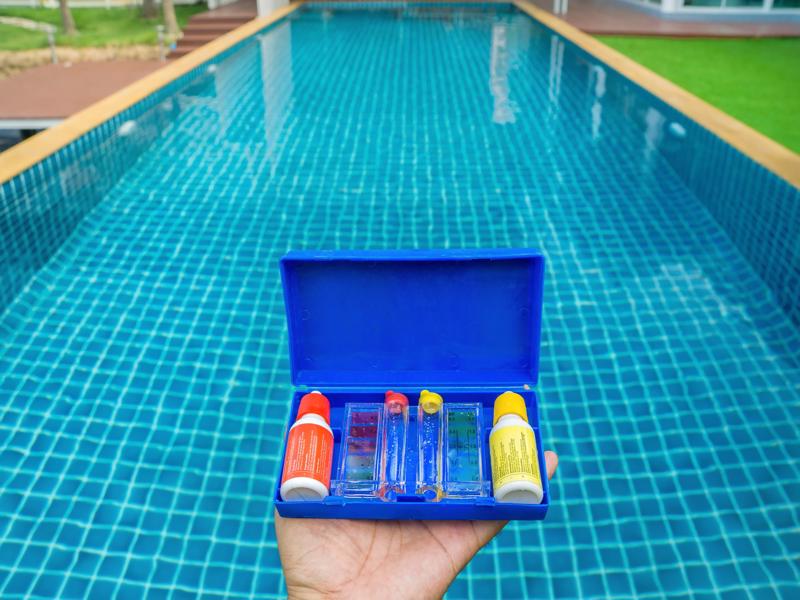
By conducting regular pool water testing, pool owners can detect and address any imbalances or contaminants promptly, ensuring the water remains safe for swimmers. The water in a pool must be carefully balanced to ensure optimal conditions for swimmers and to protect the pool itself.
Water balance refers to the appropriate levels of pH, alkalinity, calcium hardness, and sanitizer (chlorine or bromine) in the pool. Imbalances in these factors can lead to various issues.
Low pH Levels Can Cause Skin & Eye Irritation
For instance, low pH levels can cause skin and eye irritation, while high pH levels can render chlorine ineffective. Likewise, improper alkalinity can result in corrosion or scaling of pool equipment. Regular testing helps maintain the water balance within the recommended range, promoting swimmer comfort and preserving the pool infrastructure. Additionally, pool water that is not adequately cared for can become aesthetically unappealing.
Murky Water A Sign You Need Pool Water Testing
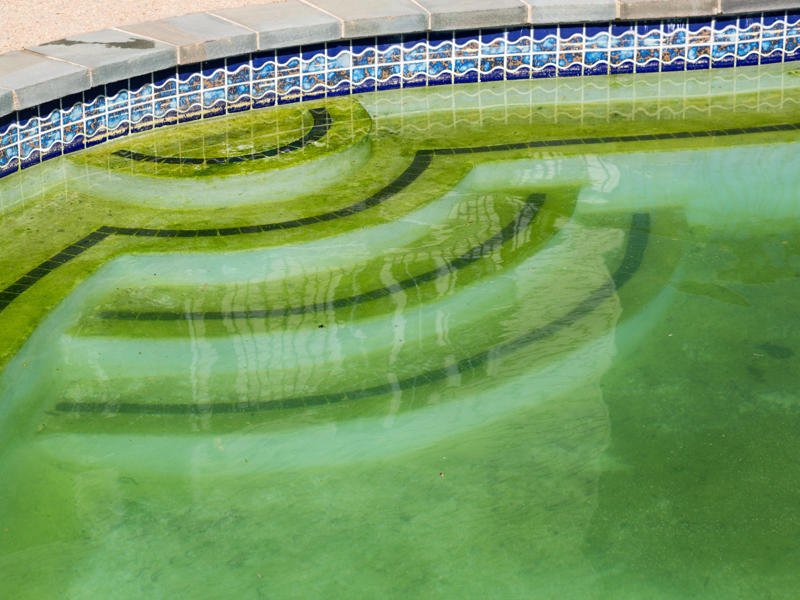
Murky, discolored water with floating debris is not only uninviting but also a sign of poor maintenance. Swimmers expect clean and visually appealing water, which enhances their overall experience. By regularly cleaning the pool, skimming the surface, and filtering out debris, pool owners can provide a visually pleasing environment that entices people to swim and relax.
Untested Pool Water Can Damage Pool Equipment
Furthermore, prolonged exposure to imbalanced water can cause significant damage to pool equipment and surfaces. For instance, low pH levels can corrode metal components, such as pool heaters and pumps, leading to costly repairs or replacements.
High calcium hardness levels can result in scaling, leaving unsightly deposits on pool walls and fixtures. By conducting regular water tests, pool owners can identify and rectify imbalances promptly, thus safeguarding their investment in pool equipment and prolonging its lifespan.
Pool Water Testing Can Increase Longevity & Pool Integrity
Moreover, maintaining healthy pool water is crucial for preserving the longevity and integrity of the pool itself. Improper water chemistry can cause corrosion and damage to the pool’s infrastructure, including its surface, plumbing, and equipment. Corrosion can lead to leaks, cracks, and deteriorated surfaces, resulting in costly repairs and potential safety hazards.
Regular testing, cleaning & maintenance are essential!
Regular testing, cleaning, and maintenance routines are essential to prevent such issues, extending the life of the pool and ensuring continued enjoyment for years to come. Proper pool water testing allows pool owners to determine the right chemical dosages required to maintain water quality. Without regular testing, it becomes challenging to accurately gauge the effectiveness of sanitizers, such as chlorine or bromine.
Too much or too little of proper chemicals can have adverse affect on you and pool equipment
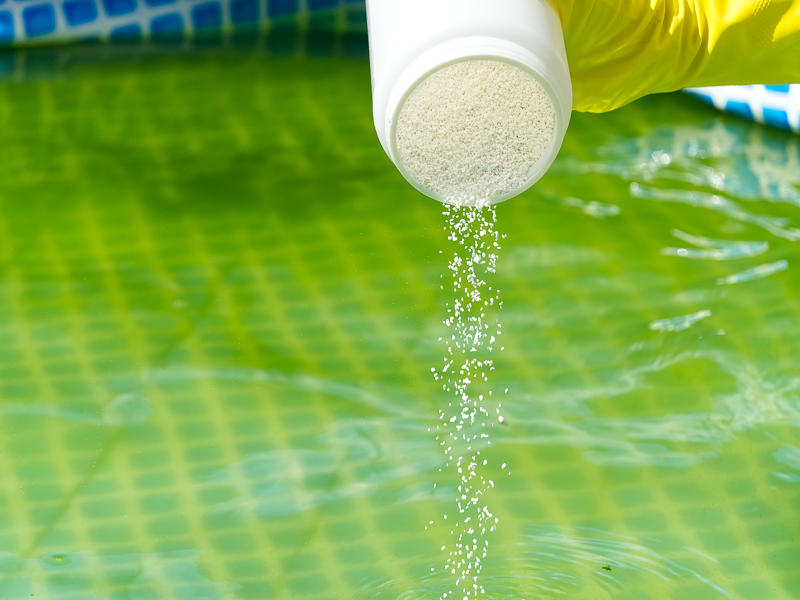
Overdosing or under dosing of these chemicals can have adverse effects. Overdosing can lead to skin and eye irritation, while under dosing can result in inadequate disinfection, allowing harmful pathogens to thrive.
Do You Need Regular Pool Water Testing?
Yes! Regular water testing ensures chemical efficiency, enabling swimmers to enjoy a clean and safe swimming environment. Effective filtration plays a pivotal role in maintaining healthy and balanced water in a home pool. The filtration system acts as the pool’s “cleaning crew,” removing impurities, debris, and contaminants from the water, thereby promoting water clarity and hygiene.
One of the primary functions of filtration is to eliminate visible particles, such as leaves, grass, insects, and other debris that may find their way into the pool. These substances not only compromise the pool’s aesthetics but can also serve as a breeding ground for bacteria and algae if left untreated.
The filtration system, typically consisting of a pump and a filter, traps and removes these particles, preventing them from accumulating and creating an unsanitary swimming environment. Moreover, filtration aids in maintaining the chemical balance of the pool water.
Chlorine kills harmful microorganisms, but don’t use too much!
Chemicals, such as chlorine or other sanitizers, are essential for disinfecting the water and killing harmful microorganisms. However, excessive amounts of chemicals can be harmful and cause imbalances, resulting in skin and eye irritation for swimmers.
The filtration system helps circulate the water through the filter media, removing excess chemicals, and ensuring a proper balance of sanitizers. This helps maintain a comfortable and safe swimming environment.
Regular Cleaning & Backwashing Pool
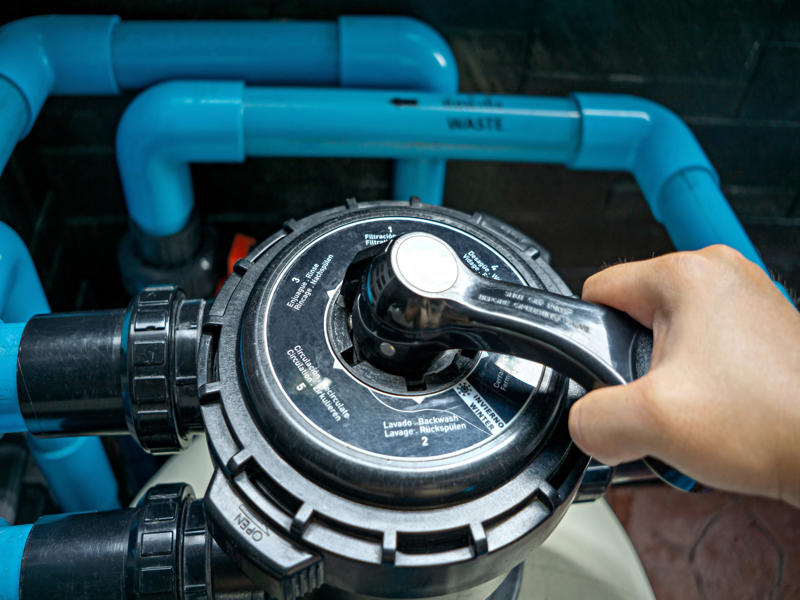
Regularly cleaning and maintaining the filtration system is crucial to its effectiveness. This involves backwashing or cleaning the filter media to remove trapped debris and contaminants. A well-maintained and properly functioning filtration system makes sure that the pool water remains clear, healthy, and free from impurities, contributing to an enjoyable and safe swimming experience for homeowners and their families. Maintaining a pool can be a significant financial commitment, and neglecting water testing can result in avoidable expenses.
Monitor Your Water Quality
By monitoring the water quality regularly, pool owners can detect and address issues promptly, preventing them from escalating into more significant problems. Timely interventions reduce the likelihood of expensive repairs, equipment replacements, or the need for extensive chemical treatments.
Additionally, by optimizing chemical usage through accurate water testing, pool owners can minimize unnecessary expenses and save money in the long run. In conclusion, regular pool water testing is vital for maintaining a healthy and balanced swimming environment. It ensures the health and safety of swimmers, protects pool equipment, and promotes cost savings for pool owners.
By monitoring the water quality, pool owners can address imbalances promptly, ensuring optimal water conditions and prolonging the longevity of their investment. A well-maintained pool not only provides a delightful swimming experience but also brings peace of mind to all who enjoy its refreshing waters.

